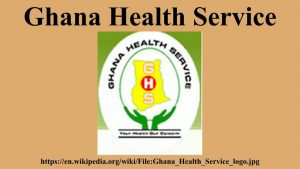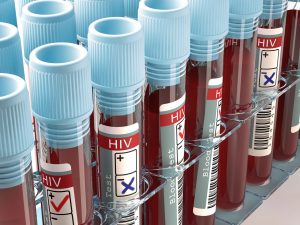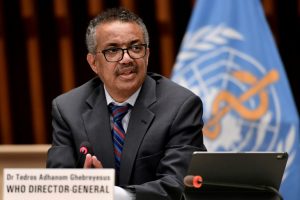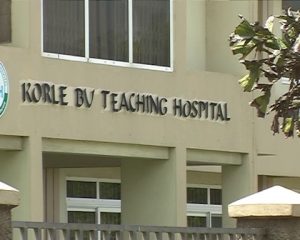The Ghana Health Service (GHS) says the confirmed case of COVID 19 in Nigeria is a wake-up call for Ghana to strengthen its preparedness measures, but not a reason for the public to panic.
It said the case in Nigeria was an evidence of the reality of the situation and the possibility of it travelling anywhere, but gave an assurance that Ghana’s surveillance and response mechanisms were ready to pick and deal with any suspected case.
It has, therefore, reiterated its appeal to Ghanaians to continue to have confidence in the country’s surveillance measures.
Speaking to the Daily Graphic in Accra yesterday, the Head of Public Health at the GHS, Dr Ebenezer Badu Sarkodie, explained that the current national preparedness measures, although not absolutely perfect, were adequate to identify any suspected case and also provide adequate management to avoid an outbreak.
He said the Ministry of Health (MoH) and the GHS were working with key health development partners such as the World Health Organisation (WHO) to monitor the global and national situation to inform further interventions to prevent an outbreak locally.
“We agree that there are a few gaps which we’ve taken note of and we are working hard to address them. But those gaps do not defeat the intention and the strength of the current activated system,” Dr Badu Sarkodie said.
He added that the surveillance system had so far picked up and tested over 25 suspected cases, which had all proven negative.
The head of Public Health debunked rumours that people went through the ports of entry without going through checks, explaining that quarantining travellers, especially from Asia, had never been part of the protocols.
Nigeria
The first case of the coronavirus in sub-Saharan Africa was confirmed in Nigeria last Thursday.
The patient is an Italian citizen who works in Nigeria and flew into the commercial city of Lagos from Milan on February 25, 2020.
The health authorities in Nigeria have said the patient was stable with no serious symptoms and was being treated at a hospital in the city.
Elsewhere in Africa, Algeria and Egypt have also confirmed cases of the disease.
The World Health Organization (WHO) had warned that Africa’s “fragile health systems” meant the threat posed by the virus was “considerable”.
Meanwhile, South Africa’s Health Ministry has announced that two nationals aboard a cruise ship docked in Japan have tested positive for the virus.
Prevention
Dr Badu Sarkodie said in the absence of vaccines and a cure, the most efficient response to the global health threat was prevention.
He, therefore, called on the public to imbibe basic hygienic practices to help prevent an outbreak of the COVID-19, formally referred to as corona virus, in the country.
He explained that adhering to basic hygienic practices such as avoiding coughing on people and not allowing people to cough on you; frequent washing of hands with soap under clean running water; using 60 per cent alcohol content sanitisers or hand scrubs had become critical to prevention because the highly contagious and airborne disease currently had no vaccine or medication.
Dr Badu Sarkodie said observing those hygienic practices were critical because the virus, although airborne, did not survive beyond 24 hours in the atmosphere, adding “Therefore, avoiding contact with the virus is key.”
The public was also cautioned against touching the eyes, nose and mouth with unwashed hands because the virus could be picked in case of contact with a sick person or potentially affected surfaces or objects.
He said as an airborne disease, careful spitting, covering the mouth before coughing or sneezing as well as regular washing of hands with soap under running water should be observed.
Surveillance mechanism
Following the announcement of the outbreak of corona virus in China in December 2019 and a declaration of the situation as a public health emergency, the Ministry of Health announced that it had put on red alert a national disease surveillance.
It said that included the designation of the Greater Accra Regional Hospital (Ridge), the Tema General Hospital as initial case management centres and later named the Police Hospital and all teaching hospitals in the country as case management centres.
The Ministry of Health also extended enhanced screening at the airport and all other points of entry to all international arrivals and this was being done with more sophisticated technology including thermal thermometers, with further checks with non-contact thermometer ‘guns’.
As part of the surveillance, 14 entry points into Ghana have been identified for monitoring.
Four of such entry points, including the Kotoka International Airport have all been fitted with terminal scanners that read the temperature of all passengers who pass by it without they noticing.
The other 10 entry points have hand-held non-contact thermometers for reading the temperature of passengers.
Monitoring
The head of Public Health said at the ports of entry, stakeholder engagements had been held with the Ghana Airport Company Limited (GACL) management, Kotoka International Airport (KIA), Ghana Immigration Service, Customs Division of Ghana Revenue Authority, Kotoka International Airport (KIA), the Tema Port etc. to strengthen COVID 19 preparedness and surveillance systems.
He said the filling of the health declaration form began on January 24, 2020, for only airlines with connections from China, but now it covered all arrivals at the KIA.
“Screening for fever using the walk through thermometers and non-contact thermometers was also ongoing at the KIA and other points of entry,” it said.
He mentioned other surveillance measures to include the development of social media messages for the public on the disease with the aim of helping people to practise the necessary preventive measures.
Background
China on January 7, this year reported to the WHO about a confirmed novel corona virus outbreak.
The virus demonstrated efficient human to human transmission and WHO declared the outbreak a Public Health Emergency of International Concern.
Consequently, the WHO requested all member states to strengthen systems for preparedness to prevent importation and ensure early detection and appropriate response to any emergency.
Dr Badu Sarkodie indicated that “Using WHO’s Country Readiness Checklist, Ghana assessed its capacities to respond to any suspected or confirmed case of COVID-19 and has developed a plan to address identified gaps in respect to preparedness, response and control activities.”
The government has committed GH¢2.8 million as an initial amount to support the country’s preparedness.
Source: Graphic.com.gh






